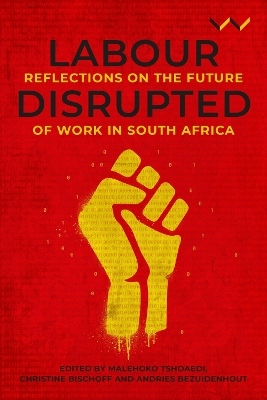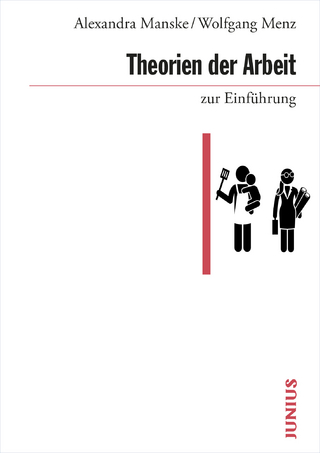
Labour Disrupted
Wits University Press (Verlag)
978-1-77614-822-6 (ISBN)
Published in the 50th anniversary year of the 1973 Durban strikes, Labour Disrupted honours this milestone by reflecting on the past and the future of labour, primarily in South Africa but also globally. It focuses on how South Africa’s lockdown during the Covid-19 pandemic further exposed key contradictions and challenges that labour movements face.
The contributions include a diverse range of topics by those actively engaged in the labour movement, who tackle a number of thorny issues: from redefining democracy in South Africa, to experiences of inclusiveness (or lack thereof) in workplace environments by women, young people, migrant workers, LGBTI people and people living with disabilities. They address contemporary issues related to the use of technology and the impact of the fourth industrial revolution on the youth and the working class, and the challenge of skills development and restructuring in the workplace.
Labour Disrupted debates new forms of organising and labour movement alliances required to address issues of social justice in education, health and community solidarity, and exposes the precariousness of union organisation under the brutal forces of globalisation.
Malehoko Tshoaedi is an associate professor in the department of Sociology at the University of Johannesburg. She is co-editor of a number of books of which most recently The Fourth Industrial Revolution: A Sociological Critique (2021) and Labour Beyond Cosatu: Mapping the Rupture in South Africa’s Labour Landscape (2017). Christine Bischoff is a researcher at the University of the Witwatersrand, Johannesburg. Andries Bezuidenhout is Professor of Development Studies at the University of Fort Hare. He is a research associate at the Society, Work and Development Institute (SWOP) at the University of the Witwatersrand, Johannesburg. He has co-edited a number of books of which most recently, Critical Engagement with Public Sociology (2021) and Labour Beyond Cosatu: Mapping the Rupture in South Africa’s Labour Landscape (2017).
Figures and Tables
Acknowledgements
Introduction: Disruptions and New Directions in South African Labour Studies – Andries Bezuidenhout, Malehoko Tshoaedi and Christine Bischoff
Chapter 1 Fragmented Labour Movement, Fragmented Labour Studies: New Directions for Research and Theory – Lucien van der Walt
PART I CHANGING SOLIDARITIES
Chapter 2 Patriarchal Collusions and Women’s Marginalisation in Mining Unions – Asanda-Jonas Benya
Chapter 3 Youth, Trade Unions and the Challenges of Employment Christine Bischoff
Chapter 4 Community Health Care Workers in Gauteng: Volunteerism as a Band-Aid for Unemployment – Nomkhosi Xulu-Gama and Aisha Lorgat
PART II TECHNOLOGY AND WORK
Chapter 5 Trade Unions, Technology and Skills – Siphelo Ngcwangu
Chapter 6 Labour Process, Hegemony and Technology: ‘Sanitised Workplace Orders’ at Two South African Mines – John Mashayamombe
Chapter 7 Trade Union Responses to Production Technologies in the Fourth Industrial Revolution –
Mondli Hlatshwayo
Chapter 8 Emotional Labour in Government Frontline Work: The Burden of Public Call Centre Workers – Babalwa Magoqwana
PART III NEW FORMS OF ORGANISING
Chapter 9 Why Other Spaces Matter: The Case of Mamelodi Train Sector – Mpho Mmadi
Chapter 10 Social Capital Unionism and Empowerment: A Case of Solidarity Union at ArcelorMittal Vanderbijlpark – Jantjie Xaba
Chapter 11 Hegemony, Counter-Hegemony and the Role of Social Movements – Janet Cherry
Chapter 12 Competing Interests: Investment Companies and the Future of Labour – Sandla Nomvete
Chapter 13 Going Global, Building Local: A Southern Perspective on the Future of Labour Internationalism – Edward Webster
PART IV LABOUR AND LOCKDOWN
Chapter 14 The Labour Movement’s Response to the Covid-19 Pandemic – Christine Bischoff
Conclusion Questions, Answers and New Directions – Andries Bezuidenhout, Christine Bischoff and Malehoko Tshoaedi
Contributors
Index
| Erscheinungsdatum | 03.10.2023 |
|---|---|
| Zusatzinfo | 13 Illustrations, black and white |
| Verlagsort | Johannesburg |
| Sprache | englisch |
| Maße | 156 x 234 mm |
| Themenwelt | Sozialwissenschaften ► Soziologie ► Mikrosoziologie |
| Wirtschaft | |
| ISBN-10 | 1-77614-822-3 / 1776148223 |
| ISBN-13 | 978-1-77614-822-6 / 9781776148226 |
| Zustand | Neuware |
| Haben Sie eine Frage zum Produkt? |
aus dem Bereich


